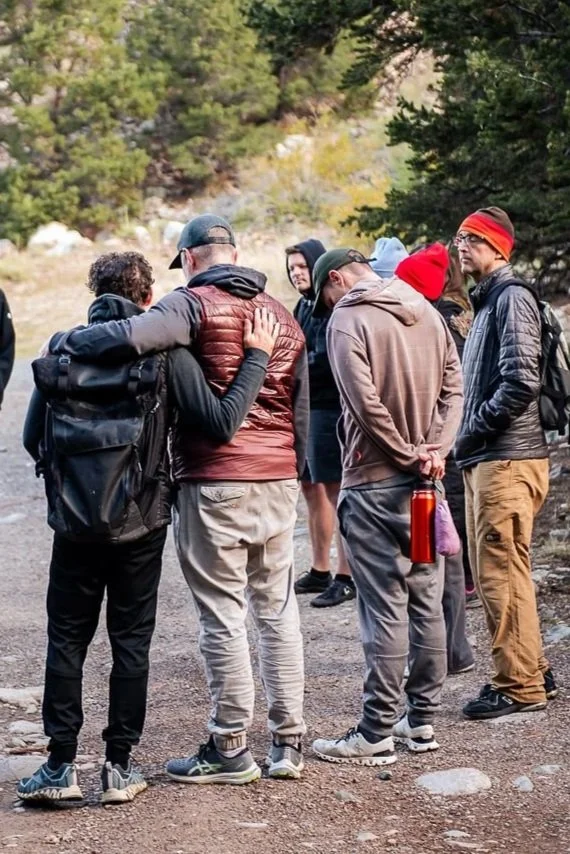We Are Wired To Be Connected
The Unbreakable Thread: Why We Are Wired to Be Connected
In a world that often celebrates fierce independence, a profound truth remains at the core of our well-being: we are wired to be connected. At Humanity Shared, we recognize that love and belonging aren't just pleasant additions to life; they are among our most primitive needs, ranking right alongside food and shelter. This fundamental human wiring profoundly impacts our mental and emotional health, shaping how we navigate the complex journey of life.
The Cost of Disconnection
Research, such as Harvard University's longest longitudinal study, consistently points to quality relationships as the most relevant factor for a good life. Yet, in our modern, fast-paced society, many of us feel increasingly alone, grappling with a sense of fear and judgment that leads to rejection. The constant stimulation from devices, global anxieties, and a culture that often neglects the importance of slowing down can leave our nervous systems perpetually heightened. This environment fosters alienation, separation, and a pervasive feeling of "not-enoughness" – also known as shame – which manifests as loneliness and suffering in our bodies, minds, and hearts.
Historically, human communities fostered a sense of healthy interdependence, where vulnerability and mutual reliance were essential for survival and well-being. Today, an extreme focus on capitalistic independence can push us away from this natural state, making it harder to build the deep, meaningful connections we crave.
Cultivating Authentic Connection
So, how do we lean into this innate need for connection in a way that truly serves us? It begins with acknowledging the difficulties that arise in relationships and developing the skills to navigate them with grace and authenticity.
• Nervous System Regulation: Before we can truly connect with others, we must learn to regulate our own nervous systems. Stress, anxiety, and even depression are normal neurological experiences, but when they become chronic, they keep us in a state of hyperarousal, making genuine connection difficult. Learning to pause, check in with ourselves, and find personal ways to reset (like movement or stillness) helps us move from merely surviving to thriving.
• Courageous Conversations: Many of us instinctively avoid conversations that feel risky, emotionally charged, or uncertain. However, these are often the very dialogues that hold the key to transformation in our personal and professional relationships. Engaging in courageous conversations means speaking with honesty and kindness even when the stakes are high, giving and receiving feedback as a gift, and making vulnerable requests. This practice requires preparation, stamina, and a commitment to repair when things don't go as planned.
• Vulnerability as a Gateway: True connection cannot exist without vulnerability. Shame thrives in secrecy and darkness, but when we courageously share our authentic selves – our struggles, our fears, and our imperfections, we invite others to meet us in that shared humanity. As we shed the "masks and costumes" we wear to fit in, we create space for genuine belonging, recognizing that being truly known, flaws and all, is where love and acceptance reside.
• Personal Responsibility and Empathy: Becoming more aware of ourselves – our somatic sensations, emotions, and desires – is a personal responsibility that enhances all our interactions. When we understand our own patterns and needs, we can approach others with greater empathy and curiosity, rather than judgment. This involves being able to hold ourselves while also holding space for others, offering unconditional support, and releasing the need to control or fix.
• Repairing Rupture: Relationships are dynamic, and ruptures are inevitable. The ability to repair these breaks, to re-attach and re-enter relationships after conflict or misunderstanding, is a crucial skill for fostering lasting connections. This means moving towards humans, even when it feels uncomfortable, making requests, and tolerating the discomfort that comes with genuine intimacy.
The principle that We Are Wired To Be Connected reminds us that our deepest healing often arises not from isolation, but from stepping into the "terrifying, sacred space of shared truth with others". By embracing self-awareness, regulating our nervous systems, engaging in courageous conversations, and leading with vulnerability and compassion, we can cultivate relationships that are not just functional but deeply purposeful, alive, and peaceful.
Ultimately, fostering authentic connection is about recognizing that no one is broken. We are all messy humans, doing our best to navigate life's challenges. By extending kindness and curiosity to ourselves and others, we can unlock a profound sense of belonging and create a world where genuine connection thrives.

